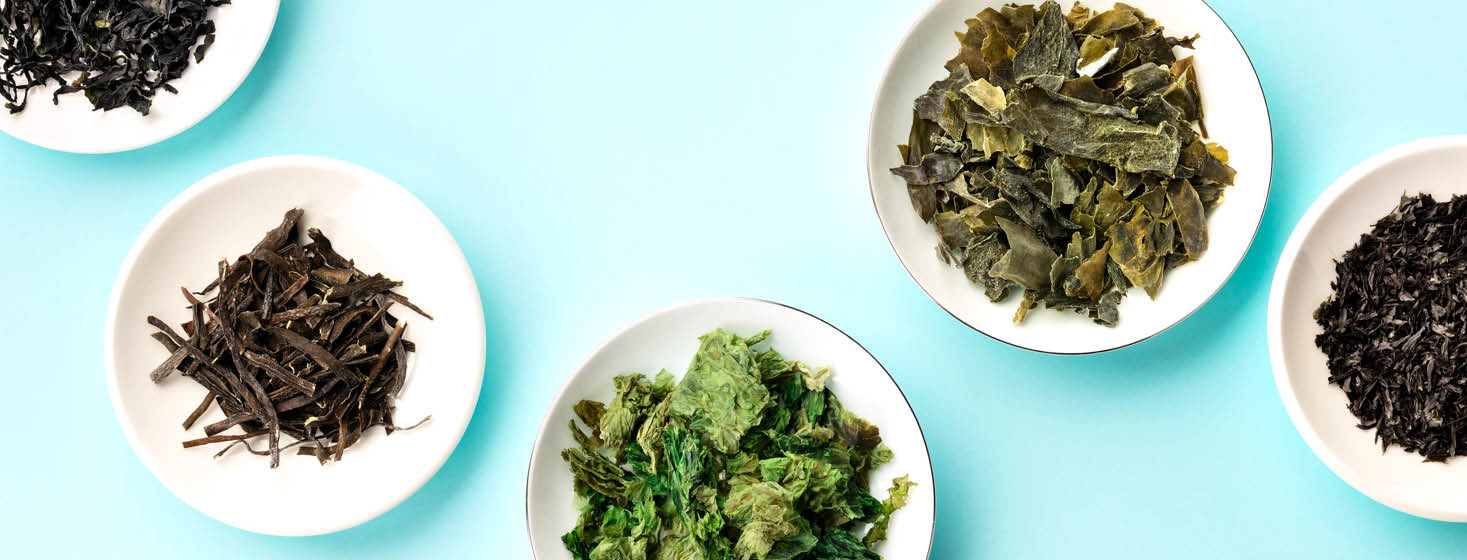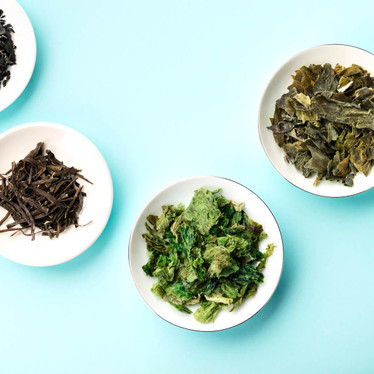
Kelp is the large brown seaweed that grows in the shallow seawater around the world. It is different to the nori seaweed we are used to consuming with sushi, but it is a key part of both the Japanese and Chinese traditional diet. Seawater, particularly the clean waters around New Zealand contain plenty of vitamins, minerals, proteins and essential enzymes, which the kelp absorbs as it grows, and once consumed, can be absorbed by the human digestive system. What you don’t necessarily see in seaweed are the amazing nutritional benefits it can offer.
Kelp has been used for hundreds of years – as it is proven to be jam packed full of nutrients that support many parts of the human body. Even high in the Andes Mountains, many miles from the sea, the local indigenous tribal people carry a little bag of dried seaweed. Somehow these remote tribal people have worked out that kelp, a product from the ocean many days walk away, offered protection for their health.
Thyroid, Metabolism and weight control
It turns out the tribal people of the Andes were on to something! Kelp is often referred to as a superfood due to its significant vitamin and mineral content. It is particularly rich in iodine, which is vital to maintain optimal thyroid and pituitary gland function – glands that control your hormones, body temperature and metabolism. If you are hoping to shed a few kilos, a strong metabolism is very important and kelp can possibly support this. Kelp also has more calcium than the powerhouse green vegetables we all know like kale and dark leafy greens. Additionally, kelp contains a good amount of iron, manganese, magnesium, copper, zinc, niacin, thiamine and vitamins A, D, B12, B6 and vitamin C.So why does this sea vegetable work so well for human beings? Dr DC Jarvis the author of Folk Medicine (Galahad 1996) 2worked out that the composition of the human body and the sea are pretty much the same.
Detoxifying
Kelp acts as one of the great detoxifiers in the ocean, breaking down chemicals, toxins and heavy metals. It is also naturally high in antioxidants including carotenoids, flavonoids and alkaloids that help fight free radical damage. Dr Jarvis practised medicine until he was in his late 80s. He maintained that the sea offered nutritional and mineral support for the problems appearing in the human body caused by eating only land grown products, especially from soils that are depleted of important essential minerals.
Because Kelp absorbs toxins found in the seawater it is harvested from, so it is essential to seek products that have been sourced locally in New Zealand and are tested for heavy metals. The even better news is that kelp is a very sustainable plant, growing over 50cms per day, so once it has been harvested it can completely regenerate in 10 days and be ready to harvest again.
Reproductive systems
The normal growth and function of the reproductive organs, particularly in women, requires the presence of iodine. Iodine deficiencies in pregnant women can cause brain development delays in the foetus and even still birth. For women experiencing dysfunctional menstrual cycles with pain or fibrocystic breasts, kelp may be a powerful food addition due to the iodine content.
In April 2011, the BBC released a report3 that suggested that iodine deficiency could becoming endemic in the UK. They studied more than 700 teenage girls in nine different towns in the UK and more than 2/3 were deficient in iodine, this revelation further raises the importance of considering supplementing your diet with kelp.
Salt replacement
Kelp is widely available now as a nutritional supplement and can be included as part of a healthy balanced diet where plenty of unprocessed vegetables, fruits and other good quality nutritious food choices, along with plenty of water are consumed daily. Kelp powder can be added as a seasoning in stews, stir fry, soups, meats and fish or sprinkled cold onto salads and noodles or even added to smoothies or juices. It has a salty taste making it great as a seasoning. It is a good way for people looking to reduce salt in their diet, for heart health reasons, to find an alternative way to season their foods. Iodine is sourced naturally through eating fish, radishes, carrots, spinach, strawberries, cabbage and onions, but we often don’t eat enough of these foods.
It is important to be aware of the amount of kelp, and therefore iodine you are consuming as too much iodine can aggravate the thyroid, particularly if you suffer from hyperthyroidism. If you are already being treated for a thyroid condition by your doctor or health professional, be sure to check the interaction of kelp on the medications you are taking. If you are pregnant or breastfeeding, again seek the advice of your health practitioner.
Have you ever tried Kelp powder? What is your experience?
BioBalance Kelp Powder is sustainably sourced in the pristine waters of New Zealand and each batch is carefully tested for heavy metals and toxicity so you can be assured you are getting a top quality product. You can buy it now from our secure online shop.
We’d Love Your Feedback
Have you ever tried Kelp powder? What is your experience?
References
1 http://www.mdpi.com/1660-3397/12/9/4898/htm
Mar. Drugs 2014, 12(9), 4898-4911; doi:10.3390/md12094898
2 http://www.jcrows.com/kelp.html
https://www.organicfacts.net/health-benefits/other/kelp.htmlhttp://www.doctor-recommended-stress-relief.com/Kelp-Benefits.html
http://www.doctor-recommended-stress-relief.com/Kelp-Benefits.html
http://www.herbwisdom.com/herb-kelp.html
http://www.motherearthnews.com/natural-health/health-benefits-kelp-zmaz99aszsto.aspx
http://www.healthline.com/health/food-nutrition/benefits-of-kelp
http://www.myvitamins.com/articles/trends/the-benefits-of-kelp/
3 http://www.bbc.com/news/health-13034582

